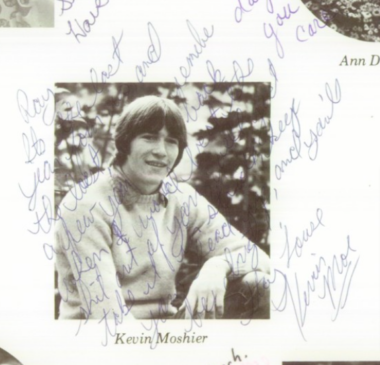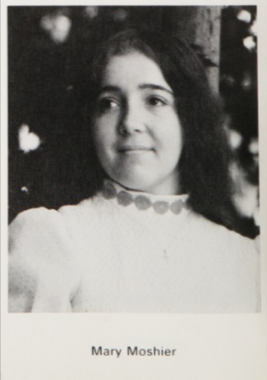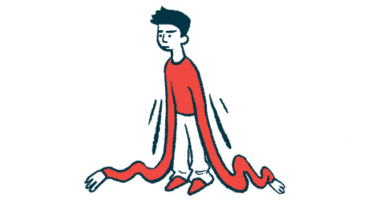The trauma of Huntington’s disease is shared by the family
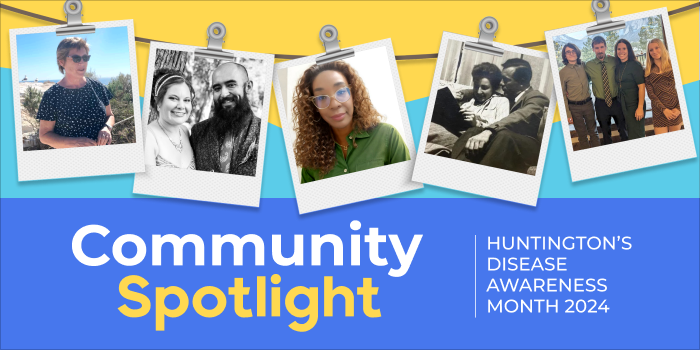
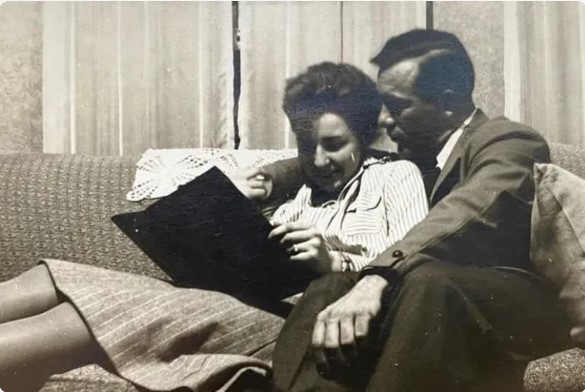
Jennifer Ushe’s grandparents, Jean and Edward Moshier. (Photo courtesy of Jennifer Ushe)
This is Jennifer Ushe’s family story:
Both of my grandparents died 10 years before I was born: Grandpa, unexpectedly and tragically, of a heart attack, and Grandma, expectedly but no less tragically, of Huntington’s disease. My Aunt Kathy tears up as she recounts the day Grandpa died. She and her siblings expected Grandma to go first.
When Grandpa died, on Jan. 2, 1974, he left behind six children, including my dad. Grandma had spent two years at the Hudson River State Hospital in New York, which offered psychiatric care. She’d been unable to care for the children for quite some time. The older three looked after the younger three.
Their only sense of security was one another and the house, which the hospital threatened to take when the family was unable to pay for Grandma’s care. The only option was to move Grandma to a nursing home. In an ultimate act of resistance, the kids refused to lose the home their dad built.
Before Grandma was moved to the hospital, she was cared for at home by her kids. I have the proof: a coffee-stained document, crumpled and creased, stating that the patient’s 10-year-old daughter, Maureen, was responsible for her mom’s entire care. Another document, this one dated Feb. 9, 1974, from the state hospital to the nursing home, details what must have been Grandma’s Huntington’s symptoms at the time:
“At present, Mrs. Moshier requires total nursing care. She cannot assist herself in any way, and is unable to speak or respond to the simplest questions. At times she is quite restless and noisy, and requires restraints to prevent self-injury due to uncontrollable movements.”
I’ve learned a lot through these documents and stories: that the family knew Grandma had Huntington’s when she started driving erratically, that they were judged by friends and family, and that Grandma was once found naked on the front lawn — the deciding factor in moving her to the state hospital.
Grandma died six months after Grandpa. I can only imagine the trauma my dad and his siblings endured. I eventually lived this trauma as well; while they cared for one another, I saw my two aunts and an uncle die of Huntington’s, just as their mom had.
I remember Aunt Mary, pictured below, in a hospital bed. I’m told she too had to be restrained because of chorea, although I don’t recall it myself. I remember Uncle Kevin, also pictured below, quietly drinking beer while watching TV sports. I remember Aunt Maureen living in dire conditions, often refusing help from her family.
I’ve always been impressed by my family’s resilience. To lose your father unexpectedly. To watch your family members decline, knowing there’s no cure. To know you too might be at risk. These experiences tend to unite or divide a family. Mine chose to unite.
In recognition of Huntington’s Disease Awareness Month in May, the Huntington’s Disease Community Spotlight campaign features a series of stories highlighting the real-life experiences of people affected by Huntington’s, written in their own words. Follow us on Facebook and Instagram for more stories like this, using the hashtag #HDSpotlight, or read the full series.




